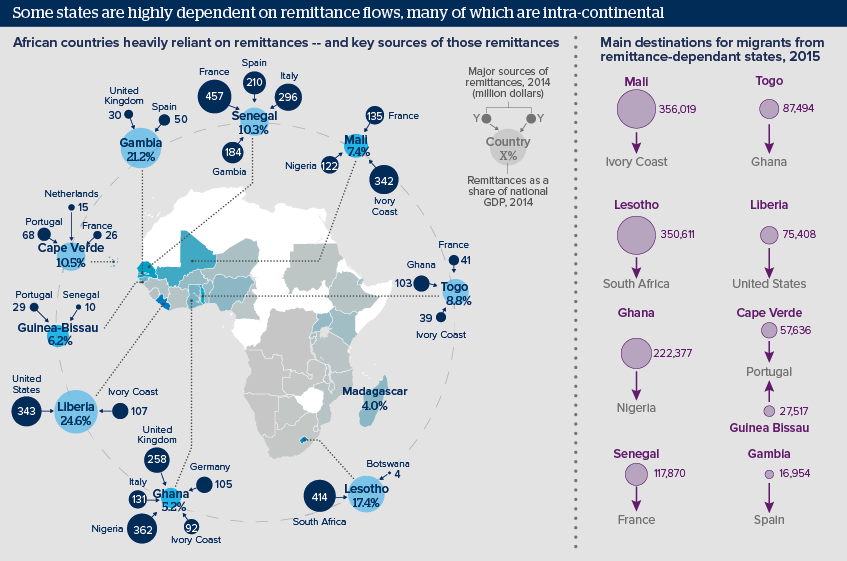EU and African xenophobia may hurt remittance flows
European curbs on migration are not the only risks facing remittance-dependent economies
Source: World Bank, UN Population Division, Oxford Analytica
Outlook
Growing anti-immigrant sentiment across much of Europe in the wake of record inflows of refugees and asylum seekers is focussing attention on the likely effects of tougher migration restrictions on 'sending' countries. In sub-Saharan states where households rely on cash remittances to support their incomes, such curbs would hurt consumption, deepening the region's economic downturn.
Yet focussing on flows originating outside the continent misrepresents the risks facing many remittance-dependent economies. In some European destinations, eg Portugal, moderate attitudes towards migration portend no major policy shifts. Meanwhile, xenophobic sentiment in other sub-Saharan states -- several of which are themselves important sources of remittances -- could drive anti-immigrant policies, hurting intra-African flows.
Impacts
- Zimbabwe's plans to 'export' skilled workers and appropriate a portion of their incomes will fail due to administrative complexity.
- Increased mechanisation at South African mines will reduce demand for migrant workers from neighbouring countries.
- In East Africa, the rapid growth of mobile banking and improving network coverage will facilitate transmission of remittance funds.
- Ivory Coast's strong economic growth will attract rising numbers of migrants from Francophone West Africa.
